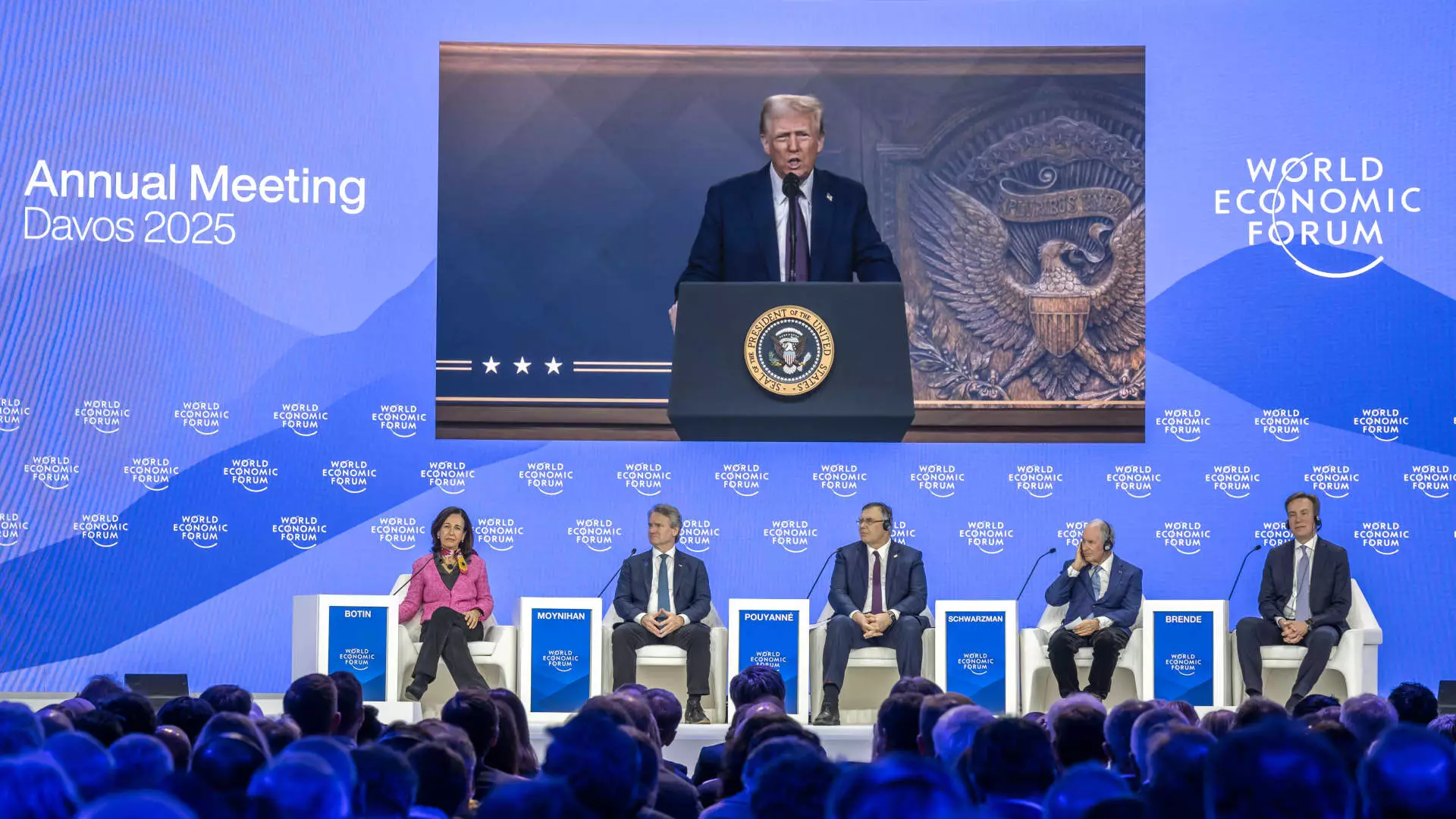In the unfolding saga of political discourse and financial practices, recent comments made by former President Donald Trump have reignited a contentious debate regarding alleged discrimination in banking against conservative individuals and organizations. Amid his speech at the World Economic Forum in Davos, Switzerland, Trump not only voiced his grievances but also implicated the leadership of two of America’s largest banking institutions: Bank of America and JPMorgan Chase. In this analysis, we will explore the implications of Trump’s accusations, the responses from the banking industry, and the broader context surrounding these claims.
During a Q-and-A session at the prestigious international gathering, Trump urged Bank of America’s CEO, Brian Moynihan, and Jamie Dimon of JPMorgan Chase to reconsider their banking policies towards conservatives. Trump’s assertions seem rooted in a larger narrative that suggests a systematic bias against conservative viewpoints within both the banking sector and broader corporate America. This rhetoric is not new; indeed, it appears to be a revival of talking points intended to galvanize his base in the lead-up to the 2024 presidential race.
Trump’s claims are particularly poignant given the current political climate, where businesses and financial institutions are frequently being scrutinized for their social and political stances. By identifying what he perceives as an unfair practice, Trump aims to resonate with supporters who feel marginalized in today’s socio-economic landscape. However, whether these accusations hold water merits further scrutiny.
The Banking Industry’s Response
In stark contrast to Trump’s assertions, both Bank of America and JPMorgan Chase refuted the claims of deliberate discrimination against conservatives. Officials from these banks articulated a commitment to serving all clients without a political litmus test, emphasizing their dedication to inclusivity in customer service. For instance, a representative from Bank of America stated, “We serve more than 70 million clients, we welcome conservatives and have no political litmus test,” highlighting their extensive client base that includes a myriad of political and ideological perspectives.
Such statements are intended to quell unrest and counteract the narrative that targeted attacks against conservative individuals are taking place. Furthermore, both banks have pointed to the regulatory landscape that guides their operational policies, indicating that changes in client status result from compliance with legal and regulatory requirements rather than political affiliations.
To better understand the claims made by Trump and the banks’ responses, one must delve into the wider context surrounding banking regulations. Following the 2008 financial crisis, U.S. regulators have significantly tightened the reins on financial institutions, demanding that banks adopt more stringent measures to combat money laundering and fraud. As part of this compliance, banks have had to reassess their client portfolios, often resulting in the discontinuation of services to industries deemed high-risk—such as payday lending and firearms trading.
Historically, this increased scrutiny has led to the de-banking of numerous entities, and thus, the conversation around this topic is layered with complexity. Discrimination based on political ideology, while a charge leveled by Trump, can often be conflated with legitimate regulatory actions that banks must undertake to adhere to legal standards.
Beyond the banks’ rejections of the accusations lies an intricate political narrative. Trump’s comments echo a broader sentiment regarding perceived elitism among large financial institutions, framing them as antagonistic to certain political beliefs. This narrative is often leveraged by right-wing commentators who argue that cultural and economic elites marginalize conservative voices.
Prominent figures within this circle have cited cases where individuals or startups claim to have faced de-banking due to political affiliations. Marc Andreessen, a notable venture capitalist, claimed that many conservative entrepreneurs have experienced financial exclusion. While these claims warrant attention, they must be examined critically, considering whether the anecdotes reflect systemic bias or rather the fallout from an increasingly regulated financial ecosystem.
As the political landscape continues to evolve, the intersection of banking practices and political ideology will undoubtedly remain a contentious battleground. Trump’s accusations may play well with his audience, but they also reveal a deeper challenge faced by financial institutions in navigating the delicate balance between compliance with regulatory demands and maintaining a politically neutral stance.
The ongoing dialogue will likely influence how financial organizations shape their policies moving forward. As they engage with regulators and the broader public, banks must remain vigilant against genuine instances of bias while also ensuring they adhere to the ever-changing regulatory framework that governs their operations. Whether this will alleviate or exacerbate divisions along political lines remains to be seen, but it is clear that both sides will need to navigate this complex landscape carefully to foster an environment that encourages inclusivity and trust.

